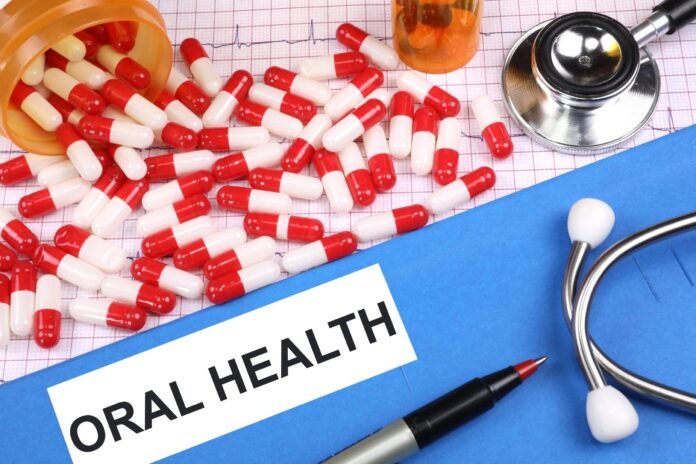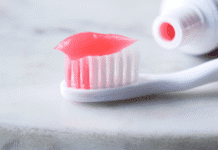Last Updated on May 17, 2025 by Rida Gul
Dental myths are everywhere, often passed down from well-meaning family members, friends, or outdated sources. While some myths seem harmless, believing in them can lead to unnecessary worry or, worse, neglected oral health. Let’s debunk five common dental myths so you can make informed choices about your dental health!
Table of Contents
Myth 1: “If My Teeth Don’t Hurt, They Must Be Healthy”
Many people believe that pain is the only indicator of a dental issue, assuming that if they’re not in discomfort, their teeth and gums are perfectly fine. While pain is a sign of some dental problems, it’s often a late-stage symptom. By the time you feel pain, issues like cavities, gum disease, or even infections may have already developed.
Why It’s a Myth: Cavities and gum disease often begin with little to no pain. A cavity can start small without causing noticeable discomfort. Gum disease, too, progresses quietly, and by the time pain occurs, it may be at an advanced stage that requires more complex treatment.
The Reality: Regular dental checkups can catch issues early, even before you feel any discomfort. Dental professionals use X-rays and thorough examinations to detect problems that might be lurking beneath the surface. Routine care, including cleanings and exams, is your best strategy to maintain optimal oral health.
Myth 2: “Brushing Harder Cleans Better”
It seems logical that applying more force while brushing would more effectively remove plaque and stains, but this is one of the most common dental myths. Brushing too hard can actually harm your teeth and gums.
Why It’s a Myth: Brushing with too much force doesn’t make teeth cleaner. Instead, it can erode the enamel (the protective layer of your teeth) and irritate your gums. Over time, enamel erosion makes teeth more sensitive and susceptible to cavities, while gum irritation can lead to gum recession.
The Reality: Use a soft-bristled toothbrush and brush gently. Focus on brushing for at least two minutes, covering all surfaces of your teeth in gentle, circular motions. This technique effectively removes plaque without damaging enamel or gums.
Myth 3: “Sugar Is the Only Cause of Cavities”
We’ve all heard that sugar causes cavities, but the link is a bit more complex than that. While sugar is a culprit, it’s not the only factor at play.
Why It’s a Myth: Cavities are actually caused by bacteria in the mouth. These bacteria feed on carbohydrates, which include sugar and starchy foods like bread, pasta, and chips. When bacteria consume these carbohydrates, they produce acids that break down tooth enamel, leading to cavities.
The Reality: While sugar intake can increase your risk, overall oral hygiene and diet are key to preventing cavities. Brush and floss daily to remove food particles that feed bacteria and limit acidic and sugary foods. Also, drinking water, particularly fluoridated water, can help wash away food particles and bacteria, reducing your cavity risk.
Myth 4: “Flossing Isn’t Necessary If You Brush Well”
Many people skip flossing, thinking that brushing alone is sufficient. However, brushing alone misses some crucial areas where plaque and food particles get trapped.
Why It’s a Myth: Brushing cleans the surfaces of your teeth, but it doesn’t reach between them. Plaque can accumulate in these hard-to-reach spaces, leading to cavities and gum disease over time.
The Reality: Flossing is an essential part of a complete oral care routine. By flossing once a day, you remove debris and plaque from between your teeth and along the gum line, helping prevent cavities and gingivitis. If traditional flossing is challenging, alternatives like floss picks or water flossers can make the process easier and equally effective.
Myth 5: “Whitening Products Weaken Your Teeth”
A lot of people are wary of whitening products, fearing that they’ll damage their teeth or make them weaker. But whitening products, when used correctly, can safely brighten your smile.
Why It’s a Myth: Many believe that because whitening can cause temporary sensitivity, it must also damage the enamel. In reality, the temporary sensitivity from whitening is due to the effects of the active ingredients, such as hydrogen peroxide, which penetrate the enamel to remove stains. This sensitivity typically subsides within a few days after whitening.
The Reality: When used as directed, whitening products approved by dental professionals are safe and do not damage tooth enamel. For those with sensitive teeth, there are options like lower concentration whitening treatments or desensitizing toothpaste to use before and after whitening. If you’re concerned, consult your dentist about the safest whitening options for your needs.
The Role of Hydrogen Water in Oral Health
Hydrogen water, enriched with molecular hydrogen, is gaining recognition as a health-boosting beverage. But did you know it could also play a role in improving oral health? Research suggests that hydrogen water’s antioxidant properties can help neutralize harmful free radicals in the mouth, reducing oxidative stress and inflammation. This can be particularly beneficial for gum health, as chronic inflammation is a leading cause of periodontal issues like gingivitis and periodontitis. Additionally, its antibacterial properties may assist in maintaining a balanced oral microbiome, helping to prevent plaque buildup and tooth decay.
Incorporating hydrogen water into your daily routine might be a simple yet effective way to support your oral hygiene regimen. While it’s not a replacement for brushing and flossing, it could act as a complementary measure to enhance overall oral health. Whether you’re sipping it throughout the day or using it as a mouth rinse, hydrogen water could be a promising addition to your oral care toolkit. However, always consult with your dentist to ensure it aligns with your specific dental needs.
Additional Tips for Debunking Dental Myths
- Seek Professional Advice: When it comes to dental health, your dentist or dental hygienist is your best source for accurate information. Regular visits not only ensure a clean bill of health but also provide an opportunity to clarify any doubts about oral care myths.
- Stay Informed with Reliable Sources: The internet is full of dental myths, so make sure you’re reading reliable, science-backed information. Websites from reputable health organizations, professional dental associations, or articles written by certified dental experts are good resources.
- Ask Questions: Whether it’s about a new product, a technique, or something you’ve heard, don’t hesitate to ask your dentist questions. They’re equipped to give you the facts so you can make informed decisions for your oral health.
Conclusion
In a world full of dental myths, it’s easy to fall for misinformation about oral health. However, knowing the truth can make a significant difference in how you care for your teeth and gums. Remember, if something sounds too good to be true, or if you’re unsure about a piece of advice, check with a dental professional. Proper oral hygiene and regular visits to your dentist are the real keys to a healthy smile, ensuring that your teeth and gums remain strong and vibrant for years to come.
Apart from that, if you want to know about Colgate Duraphat Toothpaste: Protect Your Teeth from Decay then please visit our Health Category.
















